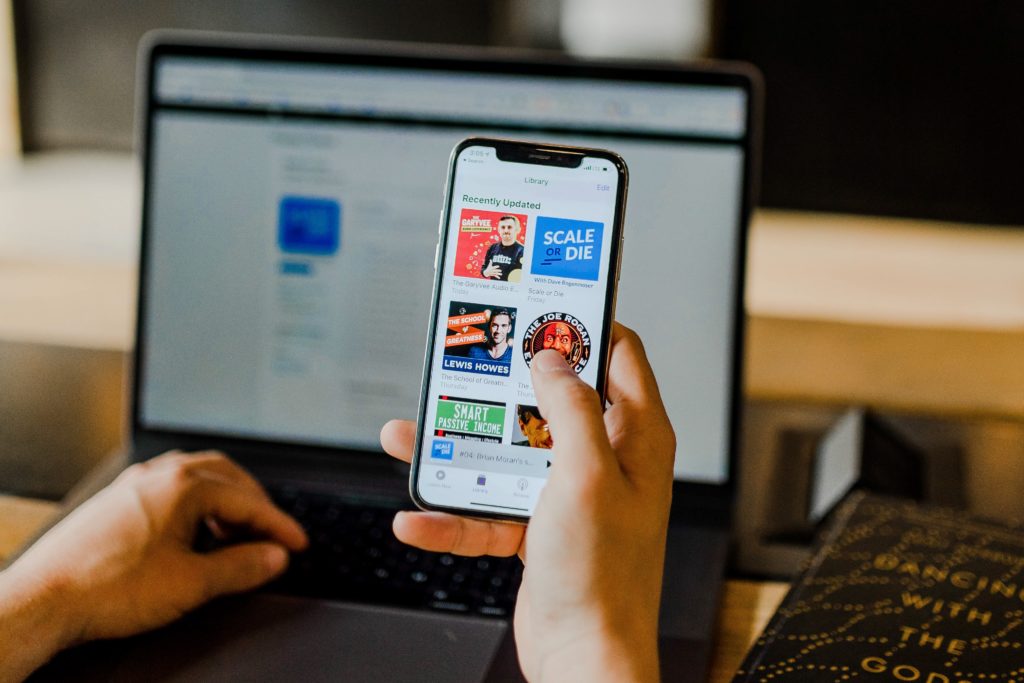How the News Impacts Our Habits

As PR professionals, we have to stay informed of the stories happening at a local, national and international level, in addition the news impacting our specific clients and their industries. This can often lead to information overload, and with today’s constant access to our smartphones and other technology, it can have adverse effects on our daily habits.
Luckily, there are ways to be both an informed PR practitioner while not letting the news negatively impact our daily life. Below are three of my habits that I’m actively trying to change in my consumption of news:
Habit #1: One of the first things I do when I wake up is check my phone while I’m still in bed. I’ll scroll through different social media apps, check my work email and respond to any text messages received overnight. While it helps me feel informed before starting my day, research shows that it can actually make you feel more stressed, anxious and have higher levels of FOMO.
What to do instead: My smartphone has a “do not disturb” setting that I can customize to my schedule, and block all notifications for a certain timeframe. It helps to not wake up to a screen full of notifications, emails and texts waiting for me. Instead of checking social media, which can feel scattered, there are a plethora of podcasts and morning newsletters that gather the top stories of the day – my friends love the NYT Daily podcast, while I prefer newsletters like The Skimm, The Evergrey and The Hustle. Lastly, I love listening to Seattle’s NPR affiliate, KUOW, on the drive into the office.
Habit #2: Similar to the first habit, I’m also guilty of scrolling Twitter at night to catch up on all the news of the day I may have missed and see whose tweets have garnered lots of likes and retweets. But just like I shouldn’t check my phone first thing in the morning, I also shouldn’t check my phone as the last thing before bed.
What to do instead: While Twitter is great for quick thoughts and funny takes, it’s not great for getting the full picture of a story. Instead, plenty of media outlets send evening newsletters recapping the headlines of the day with links to long-form articles and analysis. Reading two or three of these would better inform me than 30 minutes of endlessly scrolling social media. And then I’d have more time to actually read one of the books on my nightstand before going to sleep!
Habit #3: I recently saw a tweet (I’m on Twitter a lot, if you couldn’t already tell) from a local Seattle musician where he questioned if our social media habits have decreased our capacity to process and thoughtfully form opinions on the topics of the day. We scroll down after reading a post, immediately decide if we agree or disagree without seeing any other perspectives. He posed that this format of taking in information has resulted in a culture of “hot takes” and snap judgements.
What to do instead: To help combat this behavior and get us back to thoughtfully forming our own opinions, it’s important to find at least two to three legitimate media outlets with fair and informed stories. A healthy news diet should be just like your regular diet – you wouldn’t eat a lot of small snacks to feel full for the day. I’m striving to add more diversity between long-form and short-from content, diversity in where the information comes from (traditional outlets like newspapers, blogs and podcasts from thought leaders and “new media” like digital-only sites), and lastly, forming my own opinion after processing it all.
What are some of your habits when it comes to news consumption? What could you do better to stay responsibly informed? Let us know on Instagram and Facebook!
Photo by Austin Distel on Unsplash
